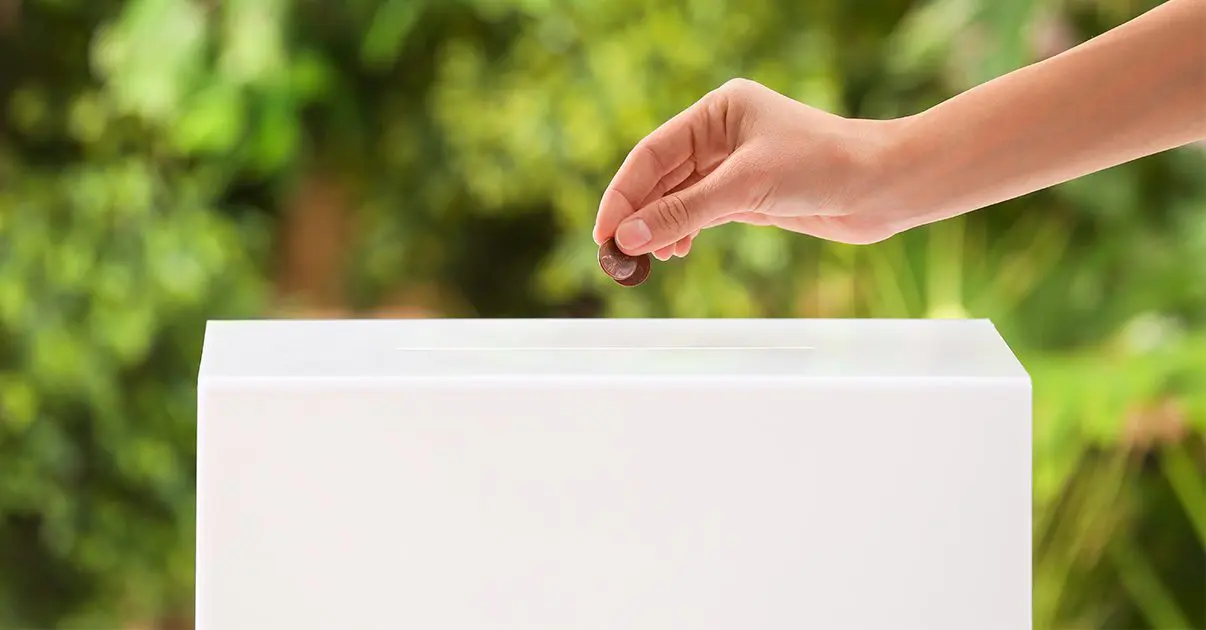Simplify the way you calculate your Zakat for 2026. By using our Zakat Calculator, see the calculation process done for you!
With separate sections for Zakatable assets (gold, silver, cash, savings, business assets, etc.) and Deductible liabilities (money you owe, other outgoings due, etc.), all you have to do is put in the values. Then you’ll immediately get the amount!
Enter all assets you’ve owned over the past lunar year (Hawl) into the Zakat calculator. This will then give you the total amount of Zakat you owe for this Islamic (Hijri) Year.
The amount of Zakat (Zakah, Zakaat) you need to pay is equal to 2.5% of your total wealth. This is if you meet the Nisab threshold. This amount, and whether you need to pay it, can be determined once you’ve calculated the value of your net assets.
At Islamic Relief, we’ve broken down the calculation process for you. You can calculate the Zakat you owe for 2026 with our quick and easy-to-use Zakat calculator.
Our calculator has clear sections listing Zakatable assets (gold, silver, cash, savings, business assets, etc.) and Deductible liabilities (money you owe, other outgoings due, etc.). All you need to do is put the value of these different assets and liabilities into their sections and the calculator will give you the result.
Muslims who meet the Nisab threshold pay Zakat once every lunar year. It is due as soon as one Islamic year has passed since meeting or exceeding this threshold.
Once you have calculated the value of your net assets, you can determine how much Zakat you owe for 2026. You will also need to figure out whether you meet or exceed the Nisab threshold, thereby meeting the requirements for paying Zakat for this year.
Nisab is the minimum amount an adult Muslim must have before they need to pay Zakat. Traditionally, the two values used to calculate the Nisab threshold for Zakat are gold and silver.
This threshold was set by Prophet Muhammad (ﷺ) at a rate equivalent to 85 grams of gold and 595 grams of silver. Other teachings may list 85 grams of gold and 609 grams of silver or 87.48 grams of gold and 612.36 grams of silver as the Nisab value.
As we no longer use silver or gold as currency, you need to check the equivalent value of these set rates in your local currency.
Using value of silver 595 grams = $2,368.06
Using value of gold 85 grams = $17,489.27
Most scholars recommend using the value of silver for Nisab when paying Zakat. This is because it is more beneficial to the Zakat recipients, which include the poor, needy and those displaced from their homes. With a lower Nisab threshold, you provide those in dire need with more aid.
First, work out the value of all the assets you’ve owned in the past lunar year. This includes gold and silver, savings, investments, shares and business assets, and money owed to you. For example, if you own $1,000 (AUD) worth of silver and gold, and have $10,000 (AUD) in savings in the bank, the value of your assets is $11,000 (AUD).
Next, work out your deductible liabilities. This includes the money you owe and other outgoings you have. For example, if you owe $1,000 (AUD) to a relative and need to pay a fine of $500 (AUD), your total deductible liabilities are $1,500 (AUD).
Then you calculate the true value of your net assets. You do this by subtracting the total deductible liabilities from the value of all the assets you’ve owned over the past year. Using the example above, this would be $11,000 (AUD) minus $1,500 (AUD), which equals $9,500 (AUD).
Check if the value of your net assets is greater than this year’s Nisab value. As most scholars recommend using the value of silver for Nisab, this will be the value your wealth needs to reach or surpass.
If the value of net assets, for example $9,500 (AUD), is greater than the Nisab value, we then calculate how much Zakat you have to pay this year. Zakat counts for 2.5% of your wealth. Thus, based on your assets, the amount you would pay in 2026 is $9,500 x (2.5/100) = $237.50 (AUD)
With Islamic Relief’s Zakat Calculator, this process is simple and easy. All you have to do is plug in your assets and deductible liabilities, and we’ll take care of the rest.
Help be a lifeline to thousands of families and communities in need around the world when you give with Islamic Relief.
No, only Muslims have to pay. Sane, adult Muslims with wealth that meets or reaches the Nisab threshold must pay 2.5% of that wealth as Zakat.
Calculating Zakat on cash is very straightforward. First, work out how much cash you own from the past year. This includes all cash in your bank account, cash at home, and cash others owe you.
Then calculate your debt. These include any cash you owe to others and any cash outgoings due. Once you subtract this amount from your savings, you can work out how much cash you own.
You deduct your debts and liabilities from the total value of your Zakatable assets from the past year. These include:
However, not all debts and liabilities are deductible. These include:
For long-term debts, including mortgages and student loans, only the overdue amounts or payments due very soon are deductible when calculating Zakat.
You must also pay Zakat on debts others owe you if you know they will pay you back. This includes repayment from loans you’ve given family and friends.
For every year that you owe Zakat, take 2.5% of the total wealth you had at the end of that year and pay that in Zakat. If you are not sure how much wealth you had, you must estimate it to the best of your ability. For example, if you have not paid Zakat for the last 5 years and gave your last payment during Ramadan, you need to work out how much wealth you owned every Ramadan for the last 5 years and pay 2.5% of that.
The general answer would be yes, however we would strongly urge you to consult a scholar about this.
Yes for savings, but not necessarily income. Zakat is based on the amount of assets you own, regardless of your income. Zakatable assets include gold, silver, cash, savings and business assets, which have been in your possession for over a lunar year. This means that you pay Zakat on your savings if it reaches the Nisab threshold, but not on your income. This includes money you’ve saved for Hajj.
Some taxes you pay can impact how much Zakat you owe. Personal taxes such as road and income tax are not exempt from Zakat. However, if these taxes are overdue, they can be counted as debt and deducted from your Zakatable assets. The money you save for tax purposes is also deductible from the Zakat total.
Generally, you can fund your Superannuation in two ways: payments deducted from your salary or contributions you make yourself.
For payments deducted from your salary by law, no Zakat is due on them. You also have no Zakat due on the money accumulated in your super. This only becomes Zakatable when the money from the fund is paid out and received by you, the contributor.
If you make payments to your super after you’ve taken out money from it, you owe Zakat on the money that accumulates in the fund afterwards.
The property you or your family own and live in is not liable for Zakat. If you own a property and rent it out to someone else, Zakat is due on income you receive from your tenets. For a property you own and intend to sell in the same year, then Zakat is owed on the value of that property for that year. If in doubt, talk to a scholar.
Every year at the time of paying, you would need to calculate the total bulk selling price for all the goods for sale in your shop. For example, you sell clothes. Then the clothes for sale in your shop add up to a total selling value of a particular sum of money. You would add this to your other eligible wealth when calculating your total payment.
You have Zakat due on any jewellery you own containing gold or silver. However, any precious stones (e.g. rubies, diamonds, etc.) your jewellery has are not counted as Zakatable assets.
Your local jeweller can help you find the current value of your gold and silver assets. They can give you the current value they would buy your gold or silver jewellery if you sold it. They can also give you the weight of the precious metals. Once you know the weight, you can calculate the value using today’s live gold price in grams. This is known as the universal measurement.


